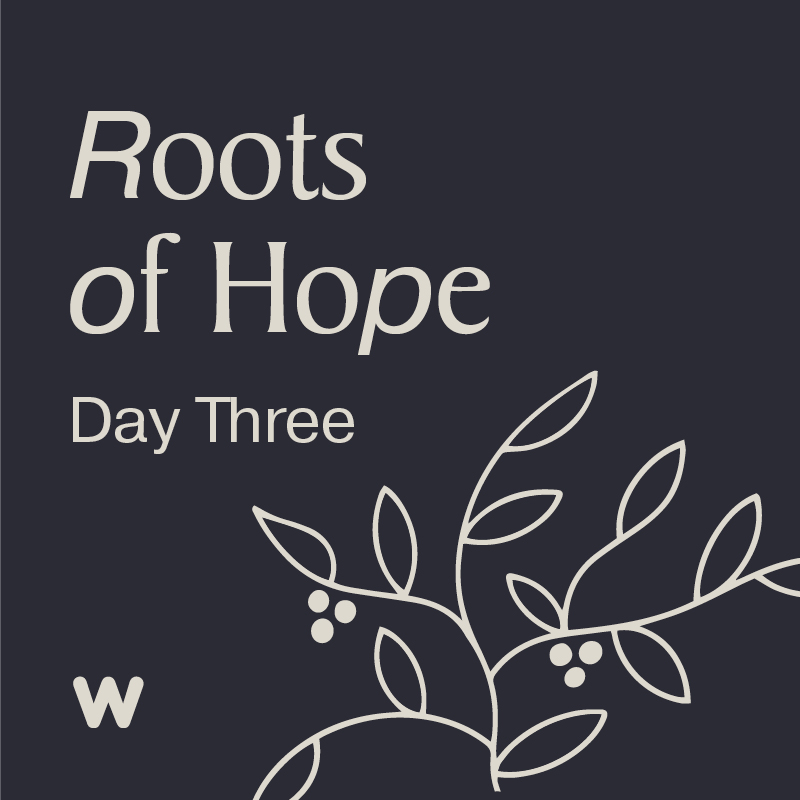Plan Info
Hope Has a Name: With Bible Study FellowshipSample

Meet Moses
Stephen continues exposing people’s habitual rejection of hope in God. Next, he reviews the life of Moses. Verses 17 to 43 provide a helpful summary of Moses’s life story. Stephen’s main source is the book of Exodus. It provides other details about Moses, his family, and his service to God.
Between birth and age 40, Moses was:
- born in Egypt under an order for all newborn Hebrews to be drowned in the Nile.
- delivered from death and adopted by Pharaoh’s daughter.
- raised “in all the wisdom of the Egyptians and was powerful in speech and action.”
- certain the Israelites would embrace him for avenging their mistreatment.
- rejected by his people and fled Egypt for Midian.
Between the ages 40 to 80, Moses lived as a foreigner in Midian. Then an angel appeared to Moses in this Gentile desert. In the flames of a burning bush, Moses heard the Lord: “I am the God of your fathers, the God of Abraham, Isaac, and Jacob … take off your sandals, for the place where you are standing is holy ground … Now come, I will send you back to Egypt.”
Stephen’s testimony cleverly counters the charges recorded in Acts 6:13: “They produced false witnesses, who testified, ‘This fellow never stops speaking against this holy place and against the law.’” Stephen is only speaking the truth of Scripture. God appeared to both Abraham and Moses while they lived far away “from the holy place” (Jerusalem’s temple) and before “the law.” Stephen upholds the Bible’s repeated truth: God saves by grace through faith in the Messiah, not at one place or by the law. (1)
Acts 6:15 describes God’s supernatural confirmation of Stephen and his message. His face looked “like the face of an angel” with glory everyone could see. These judges who claimed to revere Moses should have remembered how Moses’s face “was radiant” when he had been in God’s presence. But as Stephen makes plain, his accusers seek their own will, not a just judgment in the light of God’s Word.
From Moses to Amos
As Stephen continues with Moses’s life story, he builds his case: People repeatedly reject those God appoints and sends to deliver them. The Israelites’ defiance of Moses quoted in verse 35 echoes across history: “Who made you ruler and judge?”
In verses 39 to 42, Stephen reviews tragic events that became a cycle:
- Our ancestors rejected God’s chosen deliverer.
- Their hearts turned back to Egypt.
- They made an idol to serve their own will.
- God gave them over to their idolatry.
In the middle of verse 42, Stephen fast-forwards through about 1,000 years of Israel’s history. He skips from Exodus to the book of Amos, a prophet who spoke God’s Word about 800 years beforehand. Stephen loosely quotes God’s verdict to show what happens to people who reject God’s deliverer: “Therefore I will send you into exile beyond Babylon."
Family Stories
Imagine knowing how the Bible’s details contribute to your own life story. It’s possible. The Jewish religious leaders who tried Stephen and the mostly Jewish group that first heard Stephen’s speech from Acts would have identified these stories as their own. The Old Testament stories are family stories, and Christ’s roots of hope for today are planted in them.
Questions
6. In 7:17-19, what was daily life like for the Israelites “as the time drew near for God to fulfill his promise to Abraham,” and how might their experience apply to you?
INSIGHTS: They were enslaved; their numbers were increasing; they lost favor with Egypt’s king; they suffered under his treacherous dealings; he oppressed them; he ordered them to kill their newborn babies; life seemed increasingly dark, dangerous, and hopeless--yet God’s perfect timing for fulfilling His promise was drawing near. Personal applications will vary.
7. Acts 7:20-40 summarizes Moses’s life story. Compare this summary to Peter’s teaching in Acts 3:22-26. (Read verses in insights below.) Who is the prophet Moses predicted, and how are people’s responses to this prophet still similar today?
INSIGHTS: Acts 3:22-26: “For Moses said, ‘The Lord your God will raise up for you a prophet like me from among your own people; you must listen to everything he tells you. Anyone who does not listen to him will be completely cut off from their people.’ Indeed, beginning with Samuel, all the prophets who have spoken have foretold these days. And you are heirs of the prophets and of the covenant God made with your fathers. He said to Abraham, ‘Through your offspring all peoples on earth will be blessed.’ When God raised up his servant, he sent him first to you to bless you by turning each of you from your wicked ways.” Personal responses will vary.
8. What does Acts 7:40-43 reveal about idol worship, what idols do people falsely hope in today, and what are the consequences?
Related Verses
1 Grace: Romans 3:23-24; Ephesians 2:8-9
Scripture
About this Plan

In Hope Has a Name, you’ll learn alongside the earliest disciples that sharing the hope of Christ is worth sacrificing our lives. Witness Stephen stand trial and remain unshaken as He testifies to the promised Messiah. E...
More
We would like to thank Bible Study Fellowship for providing this plan. For more information, please visit: https://bsfinternational.org
Related Plans

Hope Beyond Circumstances

Horizon Church May Bible Reading Plan: Repent and Believe - the Gospel of Mark

I Shouldn't Feel This Way by Dr. Alison Cook

Seven Reasons to Not Fear

At the Feet of Jesus

Keep the Faith in a World Turned Upside Down by Dr. David Jeremiah

What If...

From Now On

Strength to Soar by Toni LaShaun

